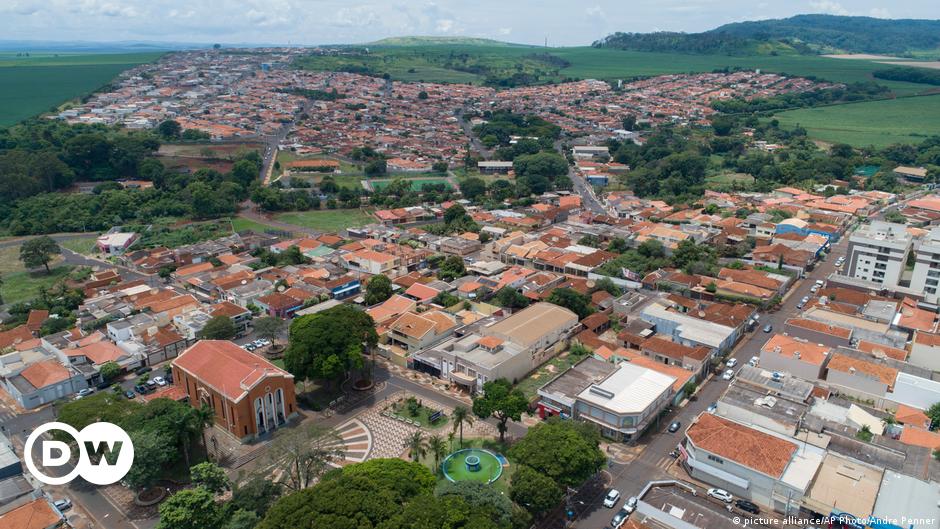RIO DE JANEIRO, BRAZIL – The mass vaccination against Covid-19 of the entire adult population of the same city concluded this Sunday in Brazil as part of an unprecedented project that seeks to analyze the capacity of Coronavac to reduce the infection rate of the coronavirus.

The immunization took place in Serrana, a city located in the interior of the state of São Paulo and home to 45,000 inhabitants, of which about 30,000 over 18 years of age were immunized with the Chinese vaccine.
The vaccination process of the so-called ‘Project S’ (Project Serrana) began last February 17 and lasted four weeks. The last phase concluded this Sunday.
As the immune response of Coronavac will only be seen two weeks after the second dose has been applied to the entire target group, the first conclusions of the experiment will only be known around mid-May.
However, the outlook is already positive at Serrana, as no patient has been intubated in the city for 10 days.
“We already see in practice a significant decrease in the flow (of patients) to the health centers, mainly of serious cases. We cannot yet relate this to the vaccination, but here in Serrana there was this drop, we believe it was due to the immunization, which gives us hope for better days”, assured the mayor of the city, Léo Capitelli.
This optimism is shared by Guilherme Montanari, 39 years old, married, father of a daughter, and who has already had the two doses of Coronavac for fifteen days.
“It has been a very positive experience, especially for those of us between 39 and 40 years of age, because the way the National Immunization Plan is being carried out is going to delay vaccination for my age group in the country. So this is a unique opportunity,” she said.
Except for pregnant or breastfeeding women and people who registered fever 72 hours before being immunized, all residents over 18 years of age in Serrana were immunized. That is, 97.7% of the total, and each of them will be monitored for a year.
According to the partial results of the study, presented this Sunday by Ricardo Palacio, director of clinical trials of the Butantan Institute, during the four weeks in which the mass vaccination process was carried out, 46 relevant events were registered, but none related to the immunization, among them, the death of six people.
Palacio indicated that five of the deceased subjects had only one dose of the vaccine, and the other victim died two days after receiving the second dose.
“The vaccine, no matter how effective it is, is not absolute, and that is why there are cases of vulnerability. This is a call not to lower our guard even if we are vaccinated,” he said.
When Brazil is suffering the worst phase of the pandemic, with more than 350,000 deaths and 13.4 million infected, the project’s conclusions will be crucial for the country giant and the whole world.
PROJECT S: ORIGIN AND EXPECTATIONS
Coronavac was developed by the Chinese laboratory Sinovac and is produced in Brazil by the Butantan Institute, one of the largest health research centers in Latin America, linked to the government of the State of Sao Paulo.
The Chinese vaccine was the first to be used in Brazil, and of the more than 47 million vaccines against Covid-19 that have been distributed so far throughout the country, about 80% are from Coronavac. The remaining percentage is from the vaccine developed by AstraZeneca and Oxford University.
Butantan is the coordinator of ‘Project S’, described by the researchers as “unprecedented” in the world, since the study will also allow measuring the impacts that large-scale immunization will have on the burden of the region’s health system, on the economy, and the movement of people.
Serrana was chosen for the study because it is a low population city with high rates of Covid-19 infection. On February 16, one day before the mass vaccination process began, this municipality of only 45,000 inhabitants had 57 deaths and 2,499 confirmed cases of the virus.
A preliminary census was carried out to identify the target public with whom the research would be carried out, to prevent inhabitants of neighboring municipalities from “sneaking in” to participate in the project.
The study also seeks to know adverse reactions to the vaccination and the vaccine’s interaction with the Brazilian variant of Covid-19, known in the scientific world as (P.1.) and one of the most contagious.
According to the mayor of Serrana, the research “will contribute to the fight against the pandemic worldwide.” Vaccination is “the best way to defeat the invisible enemy that is the pandemic,” he added.
Source: efe

